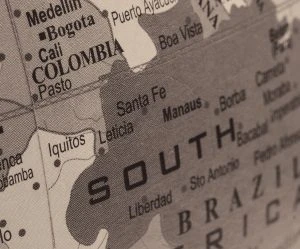Brazil government partners social networks preparing for gambling black market battle

The regulated betting market in Brazil is set to go live on 1 January 2025. However there are lingering concerns over the black market. Offshore websites have proliferated the long lead-up to legalisation and, while 113 have applied for licences, this could be just a fraction of the total number of operators active in Brazil.
Normative Ordinance No 827 clarified operators will have until 31 December to gain authorisation. Any operators active after that date without a licence will face the sanctions outlined in Normative Ordinance No 1,233, which include fines of up to BRL2bn (£278m/€327.4m/$364.7m) and a ban on applying for a licence for up to 10 years.
The Brazilian government hopes to form agreements with social media platforms to tackle the offshore issue. Talks are ongoing with the likes of Google and Meta with the aim of removing advertising for illegal sites, Folha reports.
Normative Ordinance No 1,233 mandated electronic channels from legal operators to use the Bet.br domain, making it easier to identify offshore sites and increase channelisation.
Regis Dudena, who became leader of the secretariat of prizes and betting in April, promised the body would do everything it could to stamp out the black market.
“Starting 1 January, we will use all the mechanisms at our disposal to ensure that only those authorised by the ministry of finance can provide the service nationwide,” Dudena told Folha.
Normative Ordinance No 1,231 limits influencer advertising
Normative Ordinance No 1,231 on responsible gambling ordered operators to “act diligently” in aspects such as betting systems development, as well as advertising and marketing.
Operators must not present gambling as “socially attractive”. Ads must not include statements from celebrities or influencers suggesting betting can result in social, personal or financial achievement.
The regulations on influencer advertising followed the publication of Normative Ordinance No 1,207, which clarified which online games would be allowed.
The games given the green light included the controversial Fortune Tiger. This Asian-themed slot became central to the advertising conversation, with some influencers investigated and arrested by the police after advertising Fortune Tiger on social media.
Operations were carried out in Paraná and Maranhão over influencers promoting attractive financial rewards from the scheme to their followers, many of whom lost sizeable amounts of money due to fraudulent sites.
Udo Seckelmann, head of gambling & crypto at Bichara e Motto Advogados, believes the regulations on online games and advertising will aid channelisation towards legal markets.
“The exclusion of games gives power to the grey/black market, which is what the regulator doesn’t want,” Seckelmann told iGB.
“The problems and issues regarding Fortune Tiger were never due to the game itself, but on how the advertising by the influencers was being done. Now that we have the Responsible Gambling and Advertising Ordinance, these issues will be considerably reduced.”
Further help against the black market in Brazil
The Brazilian government is also reportedly in talks with the Central Bank of Brazil to assist with the battle against offshore operators.
The objective is to identify and halt payouts involving illegal operators, especially on websites based in other countries that are currently active in Brazil.
According to Folha, the government is hoping to reach a formal agreement with the Central Bank by the end of 2024, ahead of the market going live.
Additionally, the government is hoping to work alongside internet service providers to identify and remove addresses of illegal sites.
“We don’t have a silver bullet, but we have several measures in place to make it clear to society that those who want to find a betting house should only look for authorised houses,” Dudena told Folha.
“Only in an authorised house will there be a minimum guarantee that their mental and financial health will be preserved, and that they will not be subject to fraud.”
